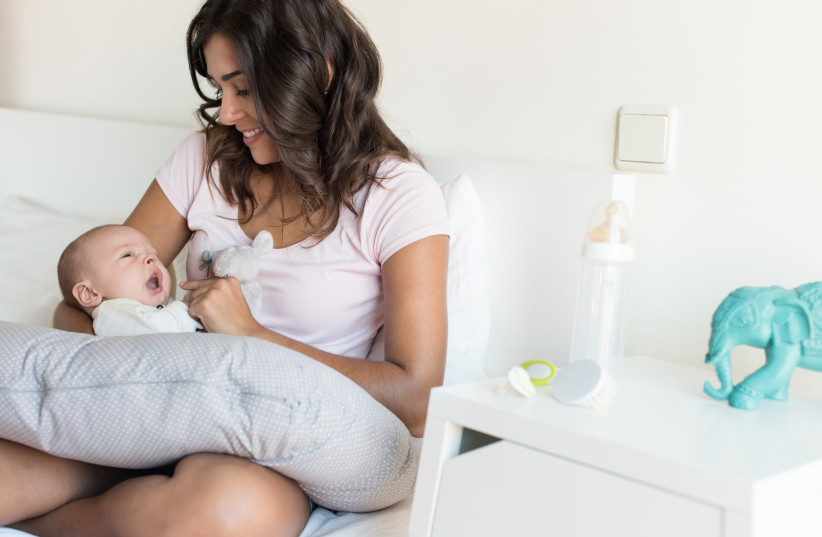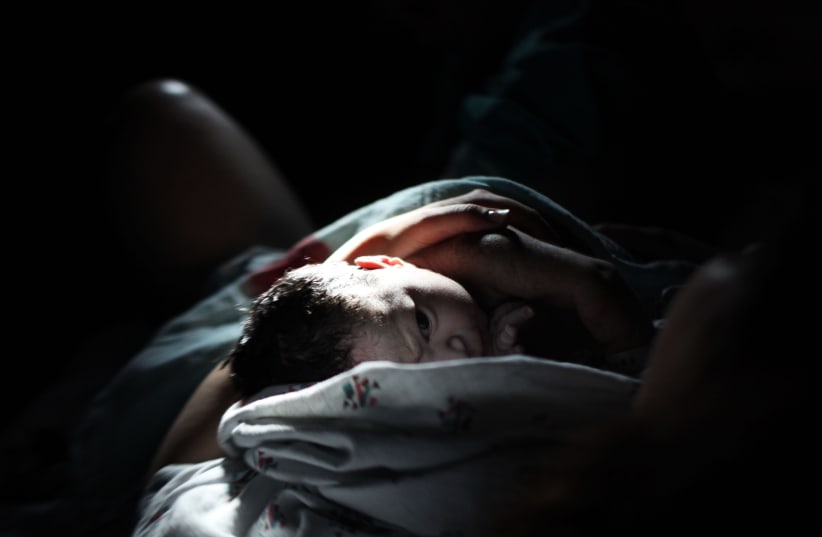Exclusive breastfeeding for the first six months of life is recommended by the American Academy of Pediatrics and the Centers for Disease Control for its benefits to immunity, bonding and health. The COVID-19 pandemic has had many health impacts on families. Among the worrying trends caused by coronavirus is that mothers were less likely to breastfeed during the pandemic, leaving their newborns isolated, according to new research published in The Lancet’s peer-reviewed eClinicalMedicine.
The study notes that transmission of COVID-19 from mother to baby was rare and generally mild when it occurred. But despite this, almost half of all babies did not receive any breast milk, with only a quarter being breastfed and the majority of mothers and babies having no skin-to-skin contact immediately after birth.
“Almost half of all newborns in the trial were denied early and close contact with their mother, demonstrating how hard it was to balance infection control measures with mother-baby bonding recommendations, especially in the first year of the pandemic,” Professor David Tingay, an author of the study, said. "Encouragingly, clinicians did gradually adapt to allow more family-centered care as the pandemic progressed, particularly the use of breastmilk.”
“Breastmilk provides a baby with nutrition and supports growth and development."
David Tingay

Tingay explained the importance of breastmilk and contact.
“Breastmilk provides a baby with nutrition and supports growth and development. Breastfeeding can help protect baby and mother against certain illnesses and diseases spanning asthma, obesity, type 1 diabetes and sudden infant death syndrome. Skin-to-skin contact helps babies adjust to life outside the womb and supports mothers to initiate breastfeeding and develop close, loving relationships with their baby.”
The research analyzed 692 babies born to mothers with SARS-CoV-2 in 13 neonatal intensive care units across 10 countries, including Brazil, France, Italy and the US.
It found 54% of newborns were separated from their mother and only 7% had physical contact before separation.
Additionally, 73 percent of those separated from their mother were admitted into a neonatal intensive care unit or special care nursery without any symptomatic or underlying condition to account for admission. Only 5% of babies born to infected mothers tested positive for SARS-CoV-2 and most cases were mild.
Improvement over time
While contact and breastfeeding were notably low at the peak of COVID-19, 23% in spring 2020 and by winter 2020-2021 it rose to 70%.
“The COVID-19 pandemic has created unprecedented challenges for healthcare services, including the delivery of family-centered care,” Tingay said. "Guidelines for the management of neonates born to infected mothers were initially formulated in the context of many unknowns and often varied and based on expert consensus rather than evidence.
He added that an encouraging finding was the increased provision of family-centered care practices as the pandemic progressed, even when the mother was very sick herself.
"We are hopeful doctors and nurses will use the experiences from the pandemic to better family-centered care whenever a mother or baby is unwell," Tingay continued. “We strongly encourage health services to continue implementing family-centered care practices during the future stages of this pandemic to ensure neonates and mothers receive the best possible health benefits.”
